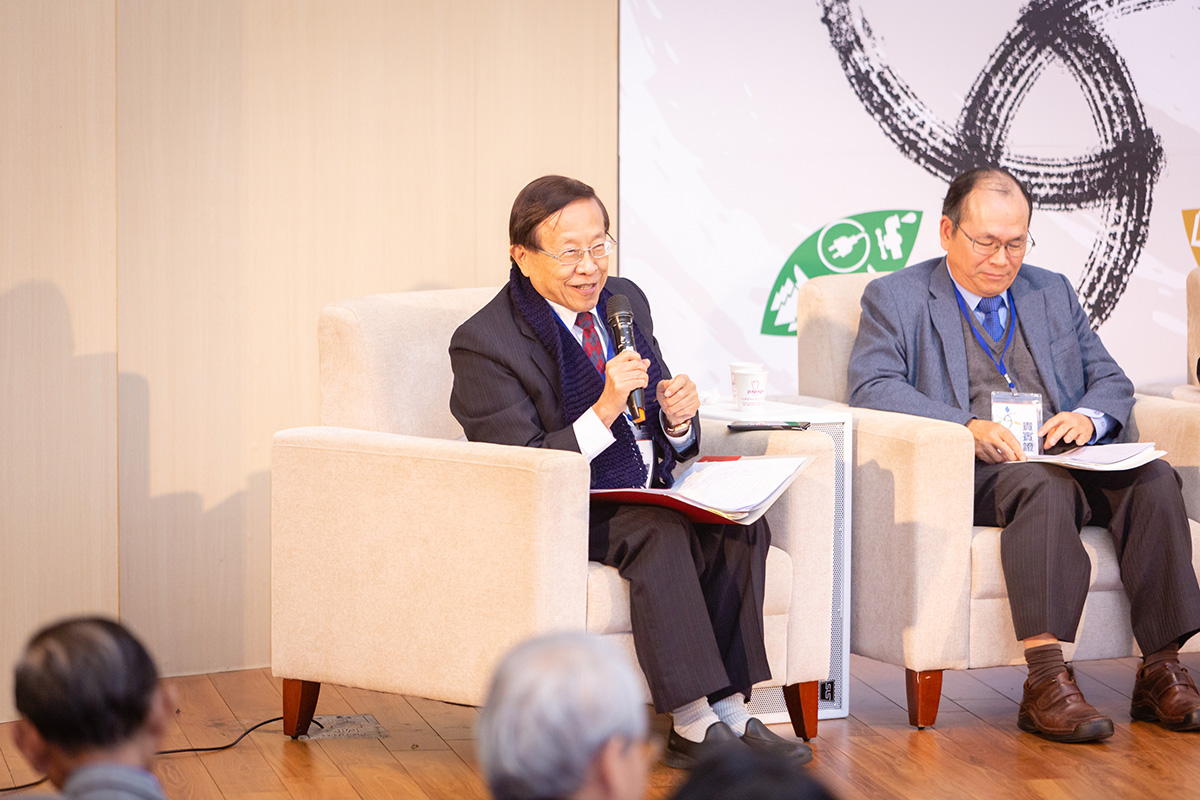
Panelist
Dr. Charles Kao,
Chairman of the Board, Global Views Educational Foundation
If "junzi" (the Confucian expression of the ideal man) is an important testament to Chinese culture, then Wang Dao is the fulfillment of it.
1. Taiwan becomes a powerless bystander
The international situation has reached a state of tension and chaos, unprecedented in the 70 years after the World War II. The unbelievable part is that the White House has become the epicenter of the tidal wave. The US, for the past century, has been considered the defender of world order and peace. But in the 2 short years since President Trump's inauguration in January 2017, his drive to "Make America Great Again" and to put "America First" has veered off course from American traditions of democracy, liberty, and philanthropy, into a new path of imperialism. He scrapped or sidelined multi-lateral and bilateral agreements, instituted protectionist measures, and abused his executive order and other powers, turning into a global troublemaker. Especially with his internal immigration controls and external trade wars, he has rejected the global theories of "lose-lose in protectionism" and "win-win in cooperation".
Faced with an unorthodox, rule-bending, and protocol-violating President of the US, our population of 23 million in the Republic of China can only be anxious bystanders, powerless to act. Sandwiched in the US and China confrontation, Taiwan has become a pawn for either side. We shudder at this fate. Opinion leaders in Taiwan must be prepared for the worst, actively coming up with countermeasures.
2. Wang Dao can bring epoch-making contributions
The revival of western hegemony is catalyst to the intellectual's uptake on Eastern concepts of governance, benevolence, ethics, and Great Unity. For the past 10 years, Dr. Chao-Shiuan Liu has been advocating Wang Dao (which combines kingly charisma and wisdom) within and without the government, cross-Straight and beyond, to spread the core values of traditional Chinese culture.
In December of 2018, the Foundation of Chinese Culture for Sustainable Development (FCCSD), led by Dr. Liu, convened the Wang Dao Sustainable Index (WDSI) grand unveiling. It is a noteworthy moment to foreign and domestic society, and furthermore worth reflecting upon for the western world.
Fortunes rise or fall, and if the east is in wax and the west is in wane, everyone must take note. As New York Times columnist Thomas Friedman asks in his book That Used To Be Us: How America Fell Behind In The World It Invented And How We Can Come Back, why should the US stay the world's number one?
What is Wang Dao? The WDSI report presents its core thinking in 5 elements: Benevolent Governance, Counterhegemony, People-orientedness, Sustainability, and Empathy. Among these, Benevolent Governance is a major theme.
In Professor Chen Sun's book Rule the World with half the Analects (Commonwealth Publishing, 2018), a lot of the discussion aligns with the precepts of Wang Dao. In the example of Benevolent Governance, I quote these passages: "Grace upon the people and giving to the masses" is the ultimate benevolence; "Placing one's heart in the heart of others"; "Do not do to others what you would not wish done to you"; "When law and order fails, the state lies in peril"; "When Tao runs in the world, chatter stops in the streets"; "Delivering well being to the people is benevolence."
WDSI indicators fall into categories of politics, military, diplomacy, environmental protection, equality, and inclusiveness. This is broader, yet more incisive, and localized than Joseph Nye's Soft Power or initiatives such as Limits to Growth, One Planet, and Inclusive Growth.
The five elements form 3 quantifiable domains of Global Ethics, Inclusive Development, and Environmental Equilibrium. These are further separated into 64 indicators, which can be used in comparison with other indices around the world.
It is no easy task for the WDSI researchers to conduct a worldwide assessment within 2 short years. An eye opening finding is that "on the road of sustainable development, the United States and People’s Republic of China are 'fragile superpowers', or regarded as 'overrated superpowers'," ranking 35th and 40th, respectively. Of developed countries, the US ranks the lowest, "indicating that the United States is hegemonic in international affairs and relatively in accord with the Wang Dao precept in domestic affairs, while China is the reverse."
The top 3 spots in the WDSI 2018 are held by Sweden, Norway, and Denmark, while Taiwan ranks 36th (next to the US at 35th), Singapore ranks 25th, Korea 28th, and China 40th.
WDSI and the United Nations' Sustainable Development Goals Index (SDGI) rankings have an overall correlation of 0.9, indicating commonalities despite differences in thinking and methodologies.
So as Taiwan's WDSI is continually developed and revised, it will gain wider international acceptance as an innovative index with Chinese philosophical ideas and global sustainability practices.
The FCCSD carries a great burden, but the path is full of possibilities worth looking forward to.